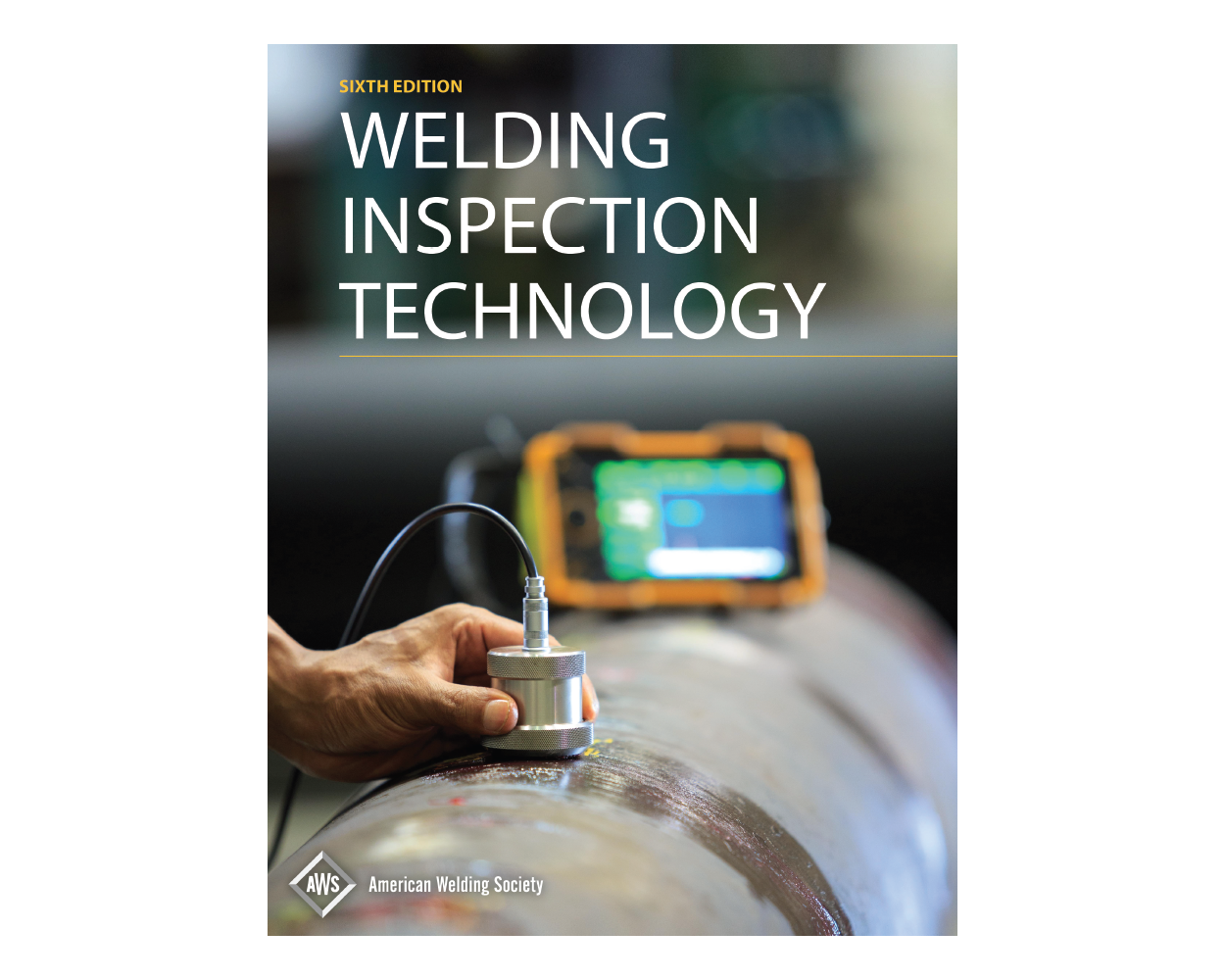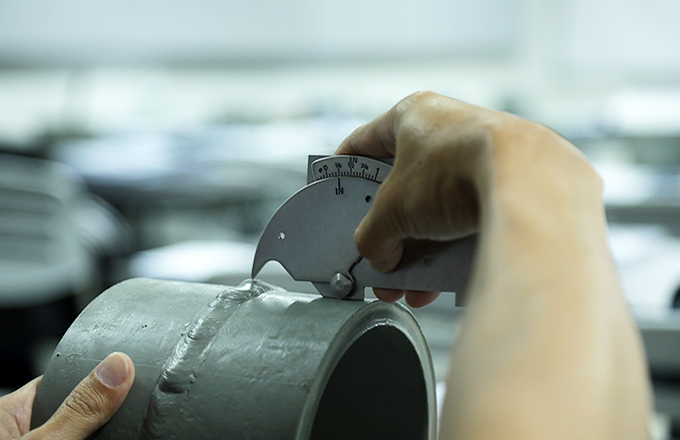Specialist Welding Inspection Services in Gilbert Arizona: What You Required to Know
The Effect of Rigorous Welding Evaluation on Industry Criteria: Supporting Safety, Dependability, and Conformity Across Various Sectors
The role of extensive welding examination is progressively acknowledged as a crucial part in improving market standards, where security, compliance, and integrity take priority across varied fields. By guaranteeing conformity to established guidelines, such as those set forth by AWS and ISO, these inspections not only mitigate dangers however additionally grow a feeling of accountability amongst professionals. Nonetheless, as industries progress and encounter brand-new difficulties, the implications of these practices may extend beyond simple conformity. What changes might we expect in welding methodologies as the demand for top quality and safety escalates?
Relevance of Welding Examinations
Recognizing the essential role of welding evaluations in preserving high quality and safety requirements, sector experts prioritize these analyses to guarantee architectural integrity. Welding inspections act as a vital checkpoint in the construction process, identifying issues that can endanger the toughness and safety of bonded structures. By methodically analyzing welds, assessors can discover issues such as insufficient infiltration, porosity, and cracks, which might not show up to the nude eye.
The relevance of these inspections expands beyond mere compliance; they are crucial for safeguarding lives and protecting financial investments. In critical sectors such as manufacturing, aerospace, and construction, a solitary faulty weld can cause tragic failings, causing both financial loss and human casualties. Consequently, implementing extensive examination methods reduces these dangers and boosts general task reliability.
In addition, constant welding examinations cultivate a culture of top quality throughout organizations, motivating welders to stick to finest methods and preserve high standards in their job. This dedication to top quality not only improves functional efficiency but likewise enhances the track record of companies within their corresponding industries. Therefore, welding evaluations are important in promoting safety, reliability, and compliance throughout various sectors.
Secret Market Requirements and Laws
The framework of welding evaluations is underpinned by a durable set of market standards and laws that govern methods across different markets. Key institutions, such as the American Welding Culture (AWS) and the International Organization for Standardization (ISO), develop standards that make certain quality and safety and security in welding procedures. AWS D1.1 outlines important requirements for welding steel structures, while ISO 3834 specifies top quality needs for blend welding.
Along with these details requirements, industry policies like the American National Standards Institute (ANSI) and Occupational Safety And Security and Wellness Administration (OSHA) requireds better boost conformity by establishing safety and security procedures and operational best techniques. These laws are vital in industries such as aerospace, building and construction, and production, where welding integrity is extremely important.
In addition, sector-specific criteria, such as those from the American Society of Mechanical Designers (ASME) for pressure vessels, provide extra layers of analysis to make sure that welds fulfill strict safety and performance criteria. Adherence to these requirements not just promotes regulatory conformity however likewise cultivates a culture of top quality and dependability throughout the welding industry, eventually safeguarding public well-being and improving operational performance.

Benefits of Compliance and Reliability
Continually adhering to industry standards and guidelines in welding assessments returns considerable benefits, improving general reliability and efficiency. The foremost advantage is the assurance of top quality in go to the website welded joints, which directly adds to the safety and security of frameworks and equipment. Compliance with well established standards reduces the threat of failing and devastating occurrences, therefore protecting both human life and useful properties.
Moreover, organizations that focus on extensive welding assessments foster a society of accountability and expertise. This dedication not only reinforces the credibility of the firm yet additionally infuses self-confidence in stakeholders and clients pertaining to the honesty of product or services. Reliable welding procedures result in decreased expenses connected with rework, repair services, and possible lawful obligations stemming from subpar craftsmanship.
In addition, maintaining conformity with industry criteria helps with smoother regulatory communications, as companies can readily show adherence to essential procedures (Welding Inspection Gilbert Arizona). This proactive approach can result in useful partnerships and possibilities within the industry, in addition to access to brand-new markets
Challenges in Welding Assessment
Navigating the intricacies of welding inspection provides a myriad of challenges that can impede compliance with industry criteria. One considerable challenge is the variability in assessment techniques and modern technologies. Various markets may employ varied approaches, causing inconsistencies in the examination of weld quality. Additionally, the lack of standardized training for examiners can lead to different interpretations of assessment requirements, which may compromise safety and security and integrity.
An additional obstacle depends on the accessibility of innovative inspection tools - Welding Inspection Gilbert Arizona. While innovations such as ultrasonic screening and radiography can enhance discovery capacities, their implementation might be limited by expense or schedule, particularly in smaller procedures. This variation can result in a dependence on less efficient assessment approaches, raising the threat of unnoticed flaws
In addition, the busy nature of modern-day production commonly stress inspectors to focus on speed over thoroughness, potentially neglecting important defects. Finally, regulatory conformity can be intimidating because of the developing nature of market standards, leaving companies having a hard time to stay up to date with the most recent requirements. These challenges require constant enhancement in inspection techniques to guarantee the stability of welded structures throughout different fields.
Future Trends in Welding Practices
Arising modern technologies and progressing methods are readied to transform welding practices in the coming years. Developments in automation, such as robotic welding systems, are gaining grip, enhancing accuracy and performance while decreasing human error. These systems will certainly not just speed up manufacturing however additionally help with constant quality assurance, dealing with some of the challenges dealt with in hand-operated welding.
Additionally, the integration of fabricated intelligence (AI) and artificial intelligence into welding processes is positioned to transform examination and tracking. Real-time data analytics will allow predictive maintenance, permitting proactive interventions that decrease downtime and increase safety. Additionally, augmented fact (AR) and online truth (VR) modern technologies are coming to be crucial in training welders, providing immersive experiences that improve skill development without the threats connected with traditional methods.
Sustainability visit this web-site is likewise an essential pattern, as sectors seek greener practices. The adoption of environment-friendly materials and methods, alongside energy-efficient machinery, will likely become standard. As sectors adapt to these changes, the focus will move towards higher compliance with safety and security and environmental laws, guaranteeing that welding practices not only meet existing standards however likewise pave the way for a more secure and more lasting future.

Verdict
In verdict, strenuous welding inspections dramatically improve sector requirements by ensuring safety and security, integrity, and compliance throughout various markets. As markets continue to focus on operational integrity, the relevance of comprehensive inspections will only boost, ultimately profiting businesses and society at big.
The role of strenuous welding inspection is progressively identified as an important component in boosting industry standards, where security, integrity, and compliance take priority throughout varied markets. Hence, welding inspections are essential in promoting security, integrity, and conformity throughout numerous sectors.
Key organizations, such as the American Welding Society (AWS) and the International Company for Standardization (ISO), establish guidelines that make sure quality and address security in welding procedures. AWS D1.1 details crucial needs for welding steel frameworks, while ISO 3834 specifies quality demands for fusion welding.
In conclusion, rigorous welding assessments considerably improve industry requirements by making sure safety, integrity, and compliance throughout different markets.